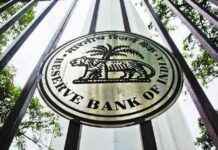Income tax regulations often spark spirited debates and discussions among taxpayers, especially when it comes to the standard deduction. As the default tax regime shifts, individuals eagerly anticipate Budget 2025 to see if Finance Minister Nirmala Sitharaman will raise the standard deduction limit once again.
In the ever-evolving landscape of income tax policies, the new income tax regime introduced in FY 2020-21 has been a focal point for many taxpayers. With more favorable income tax slabs, rates, and the introduction of standard deduction and benefits for NPS, individuals are keenly observing any potential changes that may impact their tax liabilities.
During Budget 2024, Sitharaman announced a significant hike of Rs 25,000 in the standard deduction, raising it from Rs 50,000 to Rs 75,000 under the new income tax regime. This move was met with a positive response from taxpayers, who welcomed the additional relief provided by the increased deduction.
Standard deduction plays a crucial role in reducing taxable income for individuals, especially in the absence of major exemptions and deductions under the new income tax regime. Experts in the field of personal taxation have emphasized the need for further enhancement of the standard deduction to incentivize greater adoption of the new regime.
Sundeep Agarwal, Partner at Vialto Partners, advocates for raising the standard deduction to Rs 1,00,000 to align it with rising living costs. He believes that such an increase would make the new income tax regime more appealing, given the limitations on other deductions and exemptions available to taxpayers.
Kuldip Kumar, Partner at Mainstay Tax Advisors LLP, echoes Agarwal’s sentiments, highlighting the relief that an enhanced standard deduction could provide to the salaried class. Kumar emphasizes the imbalance in deductions available to different categories of taxpayers, pointing out the disparity in treatment between salaried individuals and professionals/business owners.
Sudhakar Sethuraman, Partner at Deloitte India, proposes a fixed percentage-based standard deduction to ensure equitable treatment across various income levels. By implementing a standardized approach, the government could address concerns related to fairness and simplicity in the tax system.
Surabhi Marwah, Tax Partner at EY India, underscores the importance of increasing the standard deduction further to attract taxpayers to the new regime. Marwah emphasizes the potential for a higher standard deduction to lower taxable income significantly, particularly benefiting individuals in lower to middle-income brackets.
While the demand for a higher standard deduction under the new income tax regime gains traction, experts suggest that any further increases under the old regime are unlikely. The government’s focus on promoting the new tax regime may deter significant adjustments to the standard deduction in the existing framework.
As taxpayers await the unveiling of Budget 2025, the prospect of an increased standard deduction looms large, holding the promise of greater tax relief and financial stability for individuals across income groups. The decision to raise the standard deduction will not only impact individual taxpayers but also influence consumer spending, economic growth, and overall tax compliance in the country.
In the realm of income tax regulations, the standard deduction serves as a critical tool for taxpayers seeking to minimize their tax burden and maximize their savings. The upcoming budget announcement is poised to shape the tax landscape for the year ahead, with the standard deduction playing a pivotal role in determining the financial well-being of millions of individuals.























